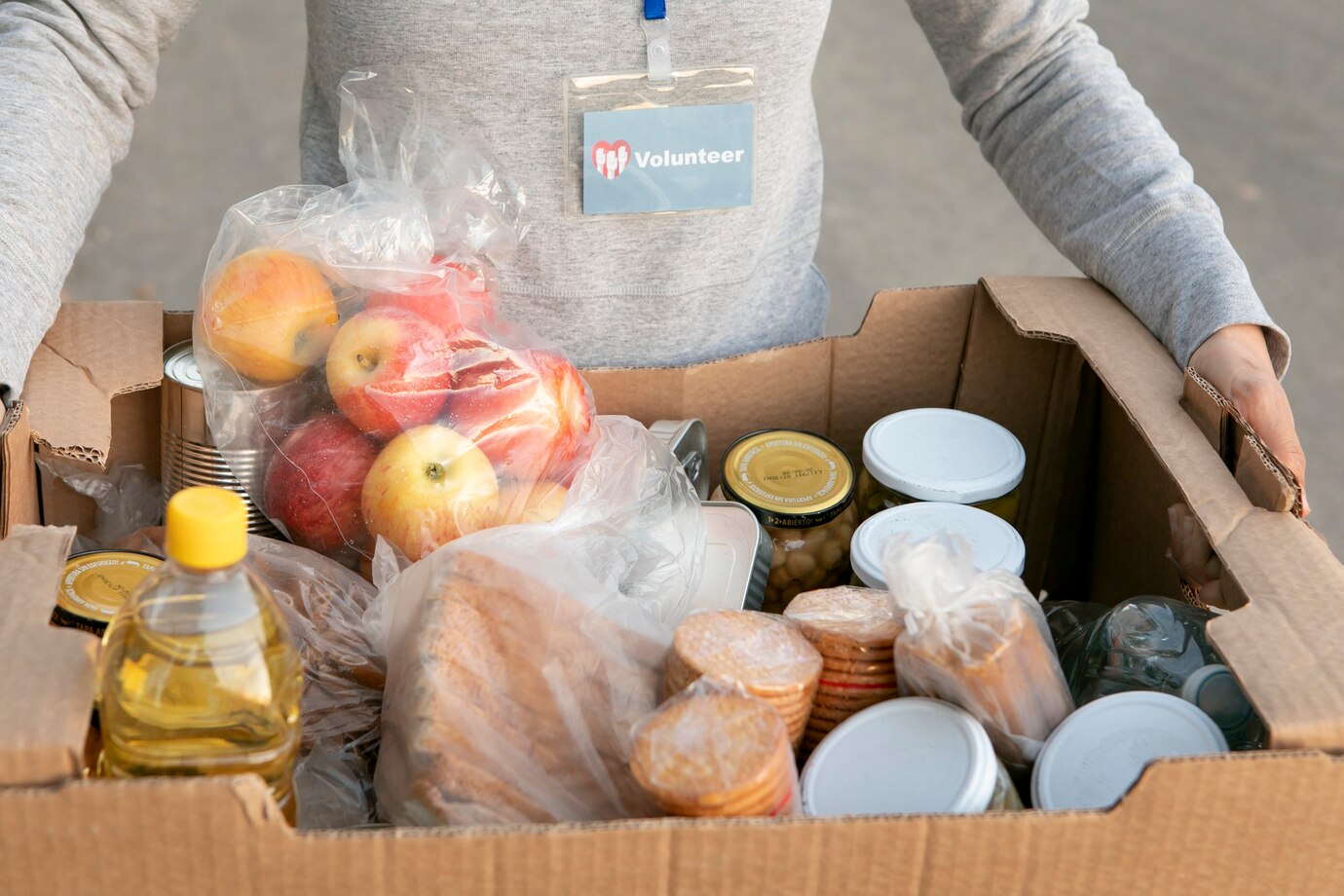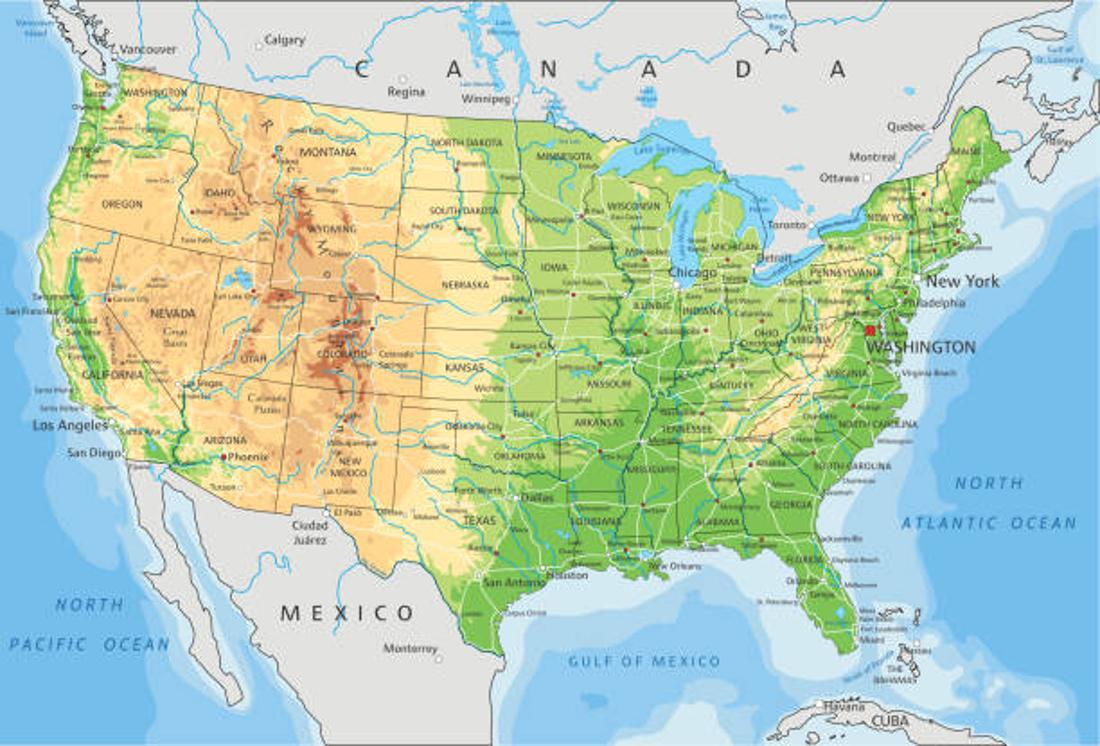Taxpayers to Fund Benefits for Illegal Immigrants
Illegal immigrants entering the U.S. amid the unprecedented migrant crisis have access to a variety of services, assistance, and benefits through a complex network of federal, state, and local programs and taxpayer-funded providers.
In fiscal year 2023, the U.S. saw a record-breaking 2.4 million migrant crossings, with over 7 million entries since 2021. While some migrants have been returned or deported, many have been processed and released into the U.S. A Fox News analysis found that nearly 7.3 million migrants have crossed the southern border under President Biden’s administration.
Many Migrants Released into the US to Appear in Court Years Later
Migrants who do not evade Border Patrol agents and are taken into custody are processed and, if not removed, often released into the U.S. with a notice to appear in immigration court, which is typically scheduled years into the future due to the court’s substantial backlog of nearly 3.6 million cases.

Source: United States Border Patrol/FOX 52/Wikimedia Commons
Migrants released into the interior cannot work legally until six months after filing an asylum claim, which not all illegal immigrants do. Many migrants have spent significant amounts of money paying smugglers to guide them to the southern border and arrive with few resources. While some may receive assistance from family members already in the U.S., others rely on various resources available as they move deeper into the country.
Pull Factor for Illegal Immigrants
Conservatives argue that offering such benefits to illegal immigrants serves as a pull factor and burdens American taxpayers. “Illegal aliens coming to America want five things: to enter the U.S.; stay here; work; send money home; and bring or have family here. All these benefits help illegal aliens stay in the U.S., so, yes, the benefits are a pull factor,” Lora Ries, director of the Heritage Foundation’s Border Security and Immigration Center, told Fox News Digital.

Source: Wikimedia
“Another benefit to add is legal services for civil deportation hearings, a benefit that U.S. citizens do not receive. Given the millions coming to the U.S. under the Biden administration, American taxpayers will see significant tax increases to pay for all these services given to people who aren’t supposed to be here. That means Americans will have even less money to spend on gas, groceries, and rent,” she said.
Healthcare Provided to Illegal Immigrants as Needed
At the border, migrants in Customs and Border Protection (CBP) or Immigration and Customs Enforcement (ICE) custody receive care and treatment as needed. This includes shelter, meals, and essential medical care. When an illegal immigrant in ICE detention requires healthcare, they are usually treated on-site by medical professionals. For specialist or emergency care, they may be transported to independent private providers, with ICE’s Health Service Corps reimbursing providers at Medicare rates.

Source: Adobe Stock
If migrants are released, they are often turned over to non-governmental organizations (NGOs) at the border, which provide care and assist them in making their way into the U.S. Federal funding supports many of these services.
$640.9 Million Provided
The Department of Homeland Security (DHS) is providing $640.9 million in FY 2024 through its Shelter and Services Program to help “non-federal entities,” including city governments and NGOs, offset costs incurred by migrant arrivals. DHS recently expanded the cap for hotels and airfare to 10% of total funding and allowed NGOs to apply for a waiver of that cap if needed.

Source: Freepik
“SSP grants have provided critical support to communities receiving migrants and the need for this support is ongoing,” DHS Secretary Alejandro Mayorkas said in a statement in September.
NGOs Help with Travel and Room
NGOs help migrants with hotel rooms and travel, typically involving bus and train tickets, and sometimes flights.

Source: Freepik
Some migrants book their own flights, while others use bus travel coordinated by Texas Governor Greg Abbott, who has arranged buses to transport migrants to “sanctuary” cities across the U.S. free of charge.
Majority Spent on Food and Shelter
A 2023 Government Accountability Office report found that the Federal Emergency Management Agency provided more than $282 million in humanitarian relief grant funding to NGOs in fiscal years 2019, 2021, and 2022.

Source: Freepik
Services provided to migrants included food, clothing, transport to airports or bus stations, medical care, legal aid, translation assistance, and travel booking. NGOs reported that migrants typically pay for their own travel, with the majority of the more than $10 million reviewed spent on food and shelter (about 58%).
“Sanctuary” Cities
Another DHS pilot program, the Case Management Pilot Program, offers case management and other services to those in immigration removal proceedings. Services include mental health services, school enrollment, legal aid, “cultural orientation programs,” and connections to social services, as well as human trafficking screening and departure planning for those being deported.

Source: iStock
Upon arriving at various destinations across the country, the assistance migrants receive varies. Many “sanctuary” cities provide shelter and specific programs to help migrants build a life in the U.S. Some cities, like New York City and Chicago, have limited the length of stay to 60 days for families due to capacity issues.
Denver and New York City
In Denver, migrants can enroll in a program offering “housing assistance options” for up to six months, along with pre-work authorization readiness training, case management, language instruction, career pathway explorations, and “work-based learning opportunities.”

Source: Wirestock, Freepik
In New York City, migrants may be eligible for a pre-paid debit card through a pilot program involving $53 million to give families with two children $350 a week for food and baby supplies. Authorities hope to expand the program to all migrant families staying in hotels. New York State has also extended state-funded Medicaid coverage to individuals aged 65 and older, regardless of immigration status. The city has offered one-way plane tickets to migrants, with a “reticketing center” assisting those seeking to travel elsewhere.
California and Washington, D.C.
In California, 2024 marks the first year that illegal immigrants are eligible for Cal-Health. Since 2019, illegal immigrants under 26 have had access to free health insurance, but eligibility now includes residents aged 26 to 49. “In California, we believe everyone deserves access to quality, affordable health care coverage — regardless of income or immigration status,” Governor Gavin Newsom’s office said in a statement.

Source: Eric Chan, Wikimedia
Washington, D.C., provides health coverage to illegal immigrants through the longstanding Healthcare Alliance program. Oregon’s Cover All People Act extends state-funded healthcare coverage to all low-income adults not eligible due to immigration status, and there has been a push to expand state-funded health insurance to illegal immigrant children in Virginia.
Legal Costs Covered in Some Cities
Some cities and states also assist with illegal immigrants’ legal costs. Chicago’s Legal Protection Fund, established in 2017, is funded by taxpayers and partners with NGOs to provide “community-based outreach, education, legal consultations, and courtroom representation for thousands of immigrants each year.”

Source: Freepik
Typically, illegal immigrants cannot receive federal benefits, including new migrants. However, they can receive benefits on behalf of their U.S. citizen children and are eligible for emergency medical treatment under Medicaid if they meet eligibility requirements. They can also access various emergency nutrition assistance programs, such as the Special Supplemental Nutrition Program for Women, Infants, and Children and the Child and Adult Care Food Program.
“Broken” Immigration System
The Biden administration has allowed illegal immigrants brought to the U.S. as children and eligible for Deferred Action for Childhood Arrivals (DACA) to apply for Obamacare. Furthermore, millions of illegal immigrants would gain access to additional benefits if granted a pathway to citizenship. The Biden administration’s proposed immigration reform bill in early 2021 aimed to provide amnesty and a path to citizenship for millions of illegal immigrants already in the country, though it faced significant opposition and did not pass.

Nonetheless, the administration continues to promote this bill as part of its vision for comprehensive immigration reform to address what it considers a “broken” immigration system.
